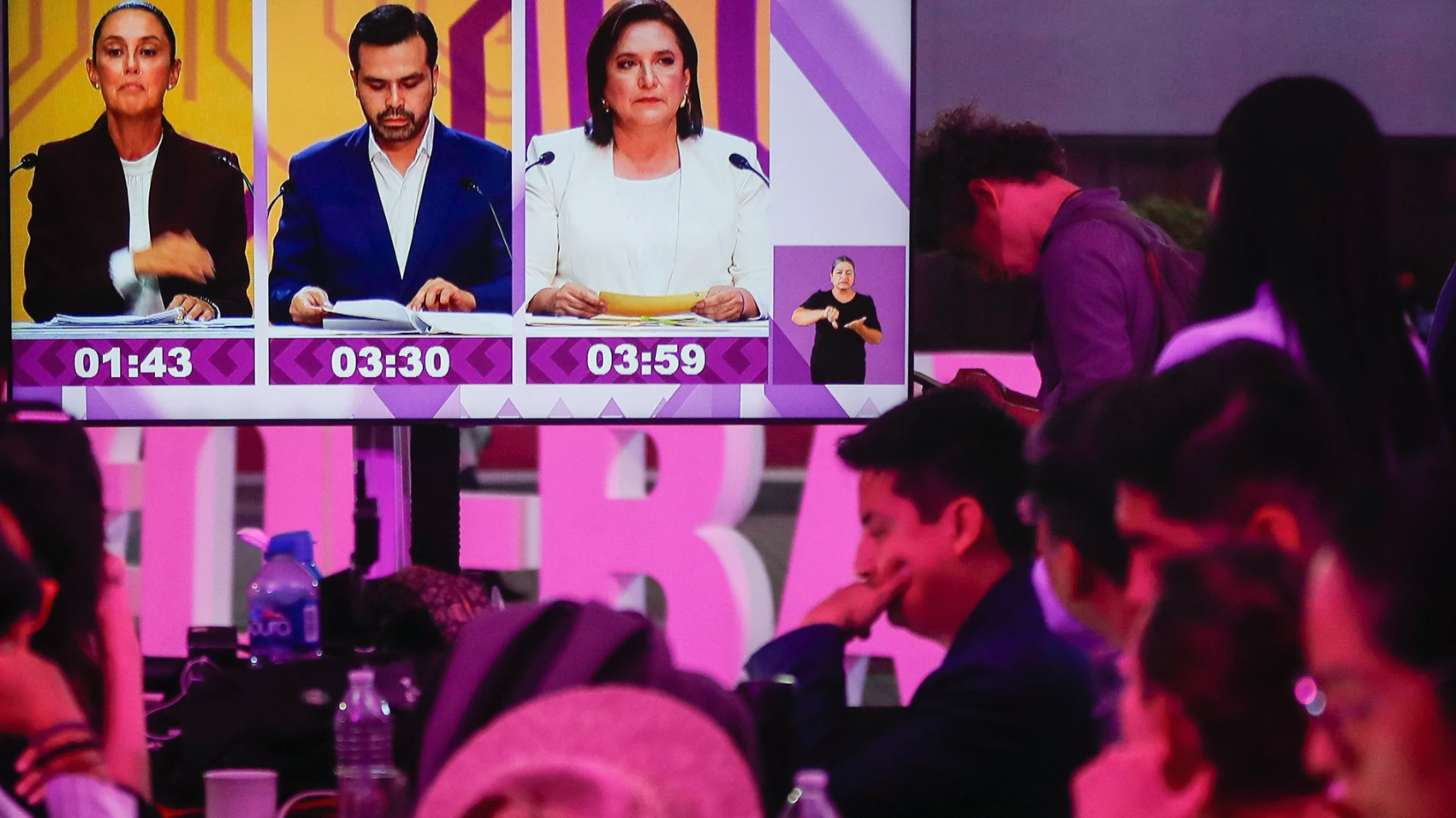The phenomenon of misinformation is on the rise and represents one of the main challenges of our time. In the recent presidential debates in Mexico, the ease with which lies are told, and the reality is altered reflect the crisis of communication.
This crisis has been interpreted by the South Korean philosopher Byung-Chul Han in his book Infocracy as a trance of the disappearance of the other. Instead of appealing to dialogue, it disappears in favor of redundancy, immediacy, spectacularization and opportunism.
Let us take an example from the first debate. Faced with the question “What would be the comprehensive plan to strengthen the health system?”, candidate Claudia Sheinbaum put before the answer a position on the issue of the Mexican embassy in Ecuador, and by prioritizing that message she ran out of time to go deeper into the question that had been posed.
I do not hear, I do not speak and I do not see: it would seem a useful strategy. Nevertheless, it limits otherness and gains superficiality as a constant that perpetuates the malicious information that grows and expands, leaving citizens adrift.
This indifference is not only in the face of regrettable facts such as femicides, but also in the same interaction between candidates. Beyond the format, what it implies to be on stage and the personality of each one of them, priority is given to the exposure of redundancy to attack the opponent instead of having an open dialogue.
In the debates, the proposals and promises have lacked support, which prevents the visualization of a national project — if it exists — for the next six years. This opacity generates uncertainty, and causes the substantive aspects to fade away and falsehood to prevail.
This informative deception is propagated through diverse expressions, whether through direct, indirect, reciprocal, unilateral, private or public relations, and in all the elements between the speaker and the message, the speaker and the medium, the speaker and the receiver, and the message and the medium.
The danger of not communicating the truth is that these practices lacerate trust and weaken social relations when the falsehood of the discourse is based on confrontation, discrediting, and anecdotes.
In response to the question “What substantive actions with a focus on human rights will you carry out to address violence against women?”, candidate Xóchitl Gálvez responded with a personal story and did not answer the question properly.
For Han, the crisis of democracy is above all a crisis of listening. Hence, her statement that the other is in danger of disappearing. The other, the important thing, the essence of life itself by which everything takes its courses and its development, remains in the background.
Perhaps surprisingly, I believe that the real winners of the debates have been the citizens, as the level of questions asked through socio-digital and videotaped networks have echoed an ethos of credibility, trust, fidelity, and respect.
Can we expect the level of discourse to improve in the last debate? Perhaps not, but we cannot fail to demand that the rhetoric of the discourse be put into practice and that the proposals reestablish a social trust where otherness prevails and the falsehood of the discourse is counteracted. In other words, let us hope that assertive communication is encouraged.
*Translated by Janaína Ruviaro da Silva from the original in Spanish.












